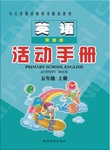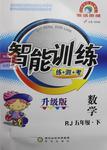

going to be home late, I asked him to go into the kitchen and get something to eat and drink.
Two hours later, my friend telephoned me from the house. At the
moment, he said, he was listening to music. He said he had helped
himself to some cold chicken from the fridge and he was now drinking a glass of orange. I asked him if he had reached the house without any
difficulty. He answered he had not been able to find the key under the
door-mat, but luckily the living-room window by the apple tree had been left open and he had climbed in. I was greatly surprised to hear all this. There is no apple tree in front of my living-room, but there is one in
front of my neighbor’s.
41.Which of the following is true?
A.The writer never knew his friend would come until his friend
called him.
B.The writer knew his friend would come before he arrived home.
C.The writer was at home waiting for his friend.
D.The writer would not like to see his friend.
42. The writer asked his friend to .
A. put the key under the door-mat
B. come to his office first
C. go into the house by himself and get something to eat and drink
D. wait for him outside the house
43.The writer’s friend .
A. found the key and opened the door with it
B. climbed into the writer’s house
C. got into the house when the writer was listening to music
D. thought the living-room was the writer’s
44.From the story we know .
A. the writer’s friend got a wrong room
B. there is an apple tree in front of the writer’s house
C. the writer didn’t close the window of his living-room when he left home
D. the writer forgot where he had put the key
45.Which is the best title of the story?
A. A strange Telephone Call
B. The Key under the Door-mat
C. My old Friend and the Trouble
D. My house and the Apple tree
 互动课堂系列答案
互动课堂系列答案 激活思维智能训练课时导学练系列答案
激活思维智能训练课时导学练系列答案科目:初中英语 来源:人教新课标初三上册练习 人教新课标 题型:050
Meeting the English Family
Rosa and her classmates were in a street in West London. The sky was dark. This was Rosa's big day, her first day in England.
Rosa got out of a taxi. The driver carried a very heavy bag for her. They walked through the rain to the front door of a big Victorian house.
A small girl opened the door. She was four years old. Her brother stood behind her. He was only two years old. One minute later, a young woman came to the door.
“Welcome to Wembley!” she said and she offered Rosa her hand. “These are my two children, Elisabeth and Isaac” “Pleased to meet you, Mrs. Frost! said Rosa with a strong Spanish accent.
The two children ran back into the living room.
“Don't worry about them! They're a little shy. And please call me Diana! Now let me show you your room and then we can have a nice cup of tea. Or would you like some coffee?”
“I'd like to try a cup of English tea, made in England.”
“This is your bedroom. There's a nice view (视野) of the football stadium (露天体育场) and here's a little desk where you can study. The bathroom and toilet are just opposite your door. Now I'll go and put the kettle on.”
“Excuse me. What's a kettle?”
“In England, we use a kettle to make hot water, we can then put the hot water in a teapot or use it to make coffee.”
Rosa was happy with her new home, but she was a little puzzled (困惑的). Perhaps her mother Maruja was right. The British were not normal people. They did not kiss when they met and they lived in large Victorian palaces. Their favourite drink was tea and they used strange metal kettles to make the water hot. What was she going to say to Elisabeth and Isaac? How could she make friends with two shy English children? Perhaps the answer was in the big, black psychology (心理学) book.
(1) It was Rosa' s big day. She and her classmates were in
[ ]
(2) Rosa's hostess (女主人) was called
[ ]
(3) What could Rosa see through the window when she was in her bedroom?
[ ]
(4) In this passage the underlined (下划线的) word “it” means
[ ]
(5) After reading the passage, we know that
[ ]
A. Rosa had some trouble in getting on well with the hostess
B. the two children didn't like Rosa
C. Mr. Frost offered Rosa much help
D. Rosa was happy with the new family, but she couldn't understand some of their customs(习俗)
查看答案和解析>>
科目:初中英语 来源:2011年山东省青岛市中考英语试卷 题型:单项填空
- Jim isn’t in the classroom. Where is he?
- He _____ to the teacher’s office.
A. wil go B. has gone C. had gone D. is going
查看答案和解析>>
科目:初中英语 来源:同步题 题型:补全对话,情景问答
 picnic there.
picnic there.查看答案和解析>>
科目:初中英语 来源: 题型:阅读理解
When I was nine years old, I used to go to the post office with my mother, sending greeting cards to my aunt in Singapore. To me, these trips were really 16 memories. And receiving mail through a mailbox outside our gate was just as exciting. My small hands could 17 get the mail without using a key! I always couldn’t wait to see how much I was 18 . Oh, a letter! From Singapore! I would run back home and show it to my 19 . When there was a letter for me, I wouldn’t run—I would open it right there.
After my family moved back to Singapore, I 20 going to the post office. Years later, my company sent me to Shanghai, and the post office found me again. Two years ago I celebrated my 21 with five friends on top of the mountain in Longsheng, China. At sunrise we 22 up to a beautiful view from the mountain top. Later in the afternoon, as we were going 23 the mountain and returning from the sunrise viewing place, a 24 shop caught our attention. It only sold noodles, coffee and had a China 25 sign.
We asked the owner if she could really send mail. She happily said yes. It seemed hard to believe, 26 we were at the highest top of the mountain. I picked one postcard out and asked my friends to write 27 a birthday note. We bought a stamp, wrote some notes and gave the shop owner the postcard.
Three weeks later, I arrived home and 28 my mailbox: He![]() llo, postcard! I broke into a big smile.
llo, postcard! I broke into a big smile.
That birthday postcard attracted me again to the post office and all its delights. I had 29 the post office all these years. Today I 30 send postcards to friends. And every time I am at the post office buying stamps, I cannot help but smile—how one postcard will make its way across the world and brighten up someone’s day.
1. A. bad B. poor C. good D. short
2. A. easily B. simply C. hardly D. specially
3. A. weighing B. getting C. selecting D. accepting
4. A. friend B. aunt C. mother D. owner
5. A. enjoyed B. stopped C. hated D. considered
6. A. wedding B. return C. success D. birthday
7. A. broke B. woke C. grew D. stood
8. A. around B. over C. up D. down
9. A. cold B. dirty C. small D. modern
10. A. Traffic B. Life C. Police D. Post
11. A. because B. though C. while D. when
12. A. him B. me C. her D. them
13. A. bought B. repaired C. painted D. opened
14. A. missed B. influenced C. studied D. visited
15. A. just B. seldom still D. n![]() ever
ever
查看答案和解析>>
科目:初中英语 来源:福建省期末题 题型:完形填空
| 完形填空。 | ||||
| Hearing is very important to all of us. We can 1 beautiful music, nice songs of birds, the laughter of people or other different kinds of 2 in the world with our ears. 3 we must try to protect our ears. The following will tell you 4 protect ears. Listening to 5 music a lot can be bad for ears, 6 when headphones (耳机) are used. So try not to wear headphones or 7 the volume (音量) when you're wearing headphones. You should give your ears a rest if you like wearing headphones. Before swimming, remember 8 earplugs (耳塞) into your ears or wear a swim hat to stop water 9 into your ears. If you are going to a concert, wear earplugs to protect your ears 10 the terrible music! 11 , special earplugs can be made for you if you go to concerts a lot or if you are a musician yourself. See a doctor if your ears 12 . 13 some medicine if the doctor asks you to do so. 14 the advice above now and you won't be saying "what?" when you are getting 15 . | ||||
|
查看答案和解析>>
湖北省互联网违法和不良信息举报平台 | 网上有害信息举报专区 | 电信诈骗举报专区 | 涉历史虚无主义有害信息举报专区 | 涉企侵权举报专区
违法和不良信息举报电话:027-86699610 举报邮箱:58377363@163.com